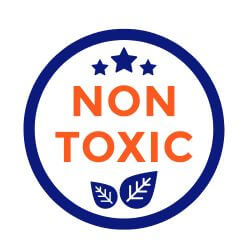As a parent, navigating the world of baby gear can be overwhelming, particularly when it comes to understanding the right time to transition from a car seat to a stroller. One moment you're ecstatic about bringing your little one home, and the next, you're faced with decisions that feel just as monumental. However, with the right guidance, this transition can be seamless and enjoyable. In this article, we’ll explore when to make the switch and how to ensure it aligns with your baby’s needs and your lifestyle.
Understanding Car Seat Usage
Car seats are designed to keep infants safe during travel, but they serve as more than just a safety device. They are a critical piece of newborn equipment that ensures your child's safety while on the move. Here are some essential elements to consider when using a car seat:
Safety Standards
Car seats must meet specific safety guidelines to be considered effective. Familiarize yourself with the federal safety standards and never hesitate to consult your manufacturer’s guidelines regarding age, weight, and height limits.
Age Appropriateness
Most parents are guided by age when it comes to transitioning from a car seat. Infants typically start off in a rear-facing car seat for the first several months. This position is crucial as it provides vital support for their delicate neck and spine.
When to Transition from Car Seat to Stroller

The decision to move from a car seat to a stroller isn't solely about meeting milestones. Several factors play into determining the right timing. Here’s what to look for:
Age and Weight Guidelines
The American Academy of Pediatrics recommends that babies should be kept in a rear-facing car seat until they reach at least 2 years of age or until they exceed the manufacturer's weight limit. Once your child has outgrown these parameters, it’s generally safe to transition to a stroller that caters to their growth.
Developmental Milestones
Every child grows at their own pace. Look for the following developmental indicators before transitioning to a stroller:
- Head Control: Infants should have strong head and neck control before being moved from a car seat to a stroller.
- Sitting Up: Once they can sit independently, typically between 6-9 months, it's a good sign they’re ready for a stroller ride.
- Curiosity about the World: If your child shows an interest in their environment, exploring the outdoors becomes an exciting prospect, making the switch more appealing.
The Benefits of Using a Stroller
Transitioning to a stroller offers numerous advantages, both for the child and the parent. Here are some key benefits you won’t want to miss:
Comfort and Support
Strollers typically allow for a more comfortable sitting position compared to car seats. As children grow, having adequate support is essential for their developing muscles and joints.
Versatility
A stroller can be used for various purposes beyond just transportation—from running errands to family outings. With options available like mompush strollers, parents can enjoy unique features tailored for their everyday needs.
Convenience
Switching to a stroller allows for easier access to your child. You can interact with them without having to unbuckle them from a car seat, making it easier to engage during outings.
Choosing the Right Stroller

Choosing the right stroller is essential for a smooth transition from a car seat. Factors to consider include:
Type of Stroller
There are several types of strollers available, such as:
- Standard Strollers: These offer basic features and are versatile for different needs.
- Lightweight Strollers: Ideal for traveling, they’re portable and easy to maneuver.
- Jogging Strollers: Great for fitness enthusiasts, these strollers provide excellent stability while on the move.
Safety Features
As a parent, safety remains your top priority. When evaluating strollers, look for features such as:
- 5-Point Harness System: Ensures that your child is securely strapped in.
- Safety Brakes: Essential for stopping the stroller when needed.
- Sturdy Frame: A robust design contributes to the stroller's overall stability.
Making the Transition Smooth
Once you’ve decided to make the transition, there are several ways to ensure it's a smooth experience for both you and your child.
Familiarization
Let your child explore the stroller while it’s stationary. Encourage them to sit in it while at home or during quiet moments to help them adapt to the new equipment.
Short Outings
Initially, keep your outings short to gauge your child's comfort. As they become accustomed to the stroller, gradually increase the duration of your walks or excursions.
Consistency
Consistency is key in ensuring your child feels secure in the stroller. Make it a part of your daily routine, allowing your child to view it as a normal part of their day.
Parental Tips for a Seamless Transition
To help you along in this important stage of your parenting journey, here are some additional tips:
Assess Your Child’s Reaction
Every child is different, and it’s critical to assess how well they adapt to the stroller. If they appear uncomfortable or resist the transition, consider waiting a little longer before making the official switch.
Pair with Fun Activities
Use the transition as an opportunity for more engaging experiences. Take your child to the park, a zoo, or a local festival where they can experience new sights and sounds while being comfortably seated in their stroller. Introducing fun can ease their adjustment.
Utilizing Accessories
Many strollers can be outfitted with various accessories that increase convenience and comfort. From cup holders to snack trays, these add-ons can make your outings with the stroller much more enjoyable for both you and your little one.
The Joy of Exploring Together
Transitioning from a car seat to a stroller is a significant milestone in your child's development. As parents, it’s essential to navigate this change with care, ensuring your child’s safety and comfort throughout the process. By understanding the signs of readiness, choosing the right stroller, and fostering a positive association with it, you open the door to a world of exploration and adventure for your little one.
As you venture into this new chapter, remember the joys and experiences that await you. Armed with knowledge and a supportive environment, the possibilities are endless. So buckle up (or should we say strap in?) and enjoy the delightful journey ahead! Exciting adventures are just a stroll away!








